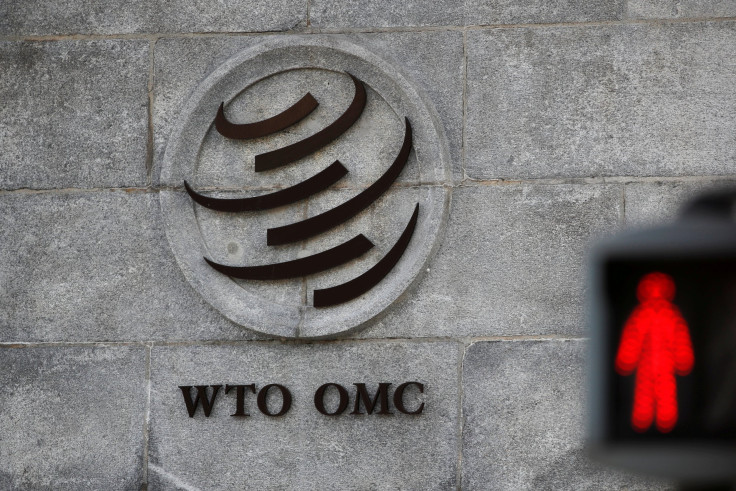US - China Trade Relations: Beijing May Implement $2.4B In Sanctions Over Non-Compliance With WTO Ruling

China is seeking to implement $2.4 billion in sanctions on the United States over its non-compliance with a World Trade Organization ruling in July over Obama-era tariffs. China had taken the U.S. to court in 2012 over American anti-subsidy tariffs on Chinese goods such as solar panels and wind towers.
WTO appeals judges said in July that the U.S. could face sanctions from China if it continues to levy tariffs that break the organization's rules.
"In response to the United States' non-compliance with the WTO Dispute Settlement Body's (DSB) recommendations and rulings, China requests authorization from the DSB to suspend concessions and related obligations at an annual amount of $2.4 billion," China said.
The U.S. has said that China uses its state-owned enterprises (SOE) to gain advantages in international trade and "distort" prices of certain goods. The U.S. has criticized the WTO's July ruling.
"The WTO appellate report undermines WTO rules, making them less effective to counteract China SOE subsidies that are harming U.S. workers and businesses and distorting markets worldwide," the office of U.S. Trade Representative Robert Lighthizer said.
The U.S. has had a fraught relationship with the WTO under the Trump administration. Trump has even threatened last year to pull out of the WTO and has argued that the body has ruled too often against the U.S.
Analysis has found that the U.S. has won on 91% of adjudicated issues by the WTO when it is a complainant, while it has lost on 89% of adjudicated issues as a respondent. Other countries do not want to bring the U.S. to the WTO on trade unless they are absolutely sure that the U.S. has violated international trade rules.
An outgrowth of General Agreement on Tariffs and Trade, known as GATT, the WTO was founded in 1995 to supervise trade agreements. China joined the WTO in 2001.
© Copyright IBTimes 2025. All rights reserved.





















